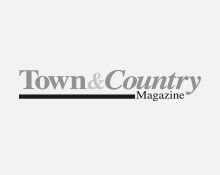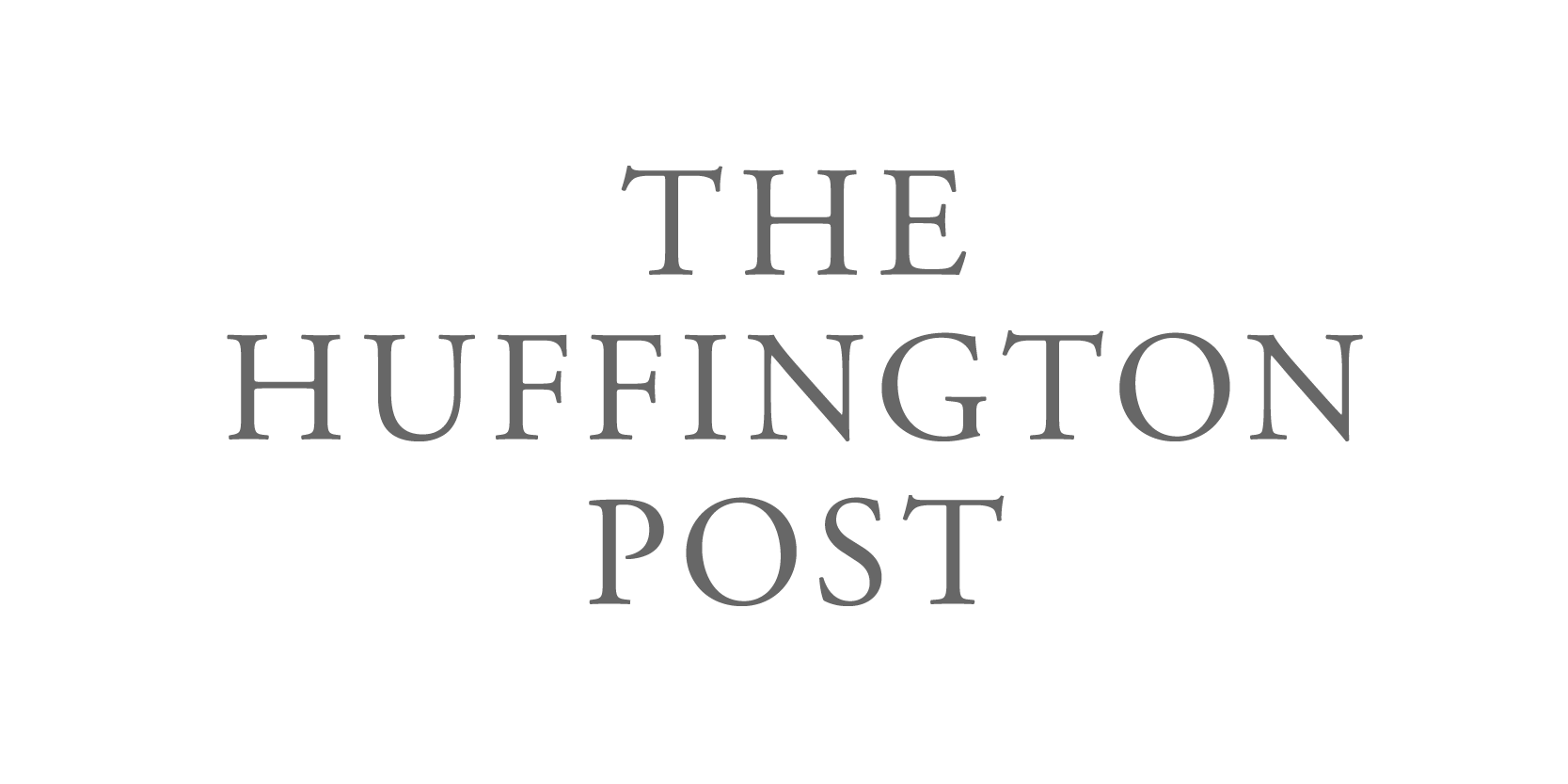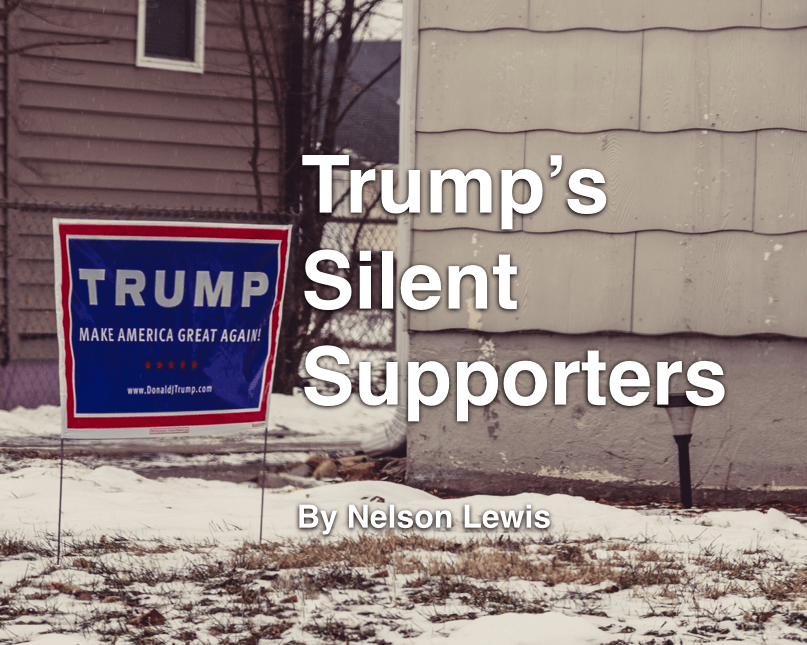
Trump’s Silent Supporters
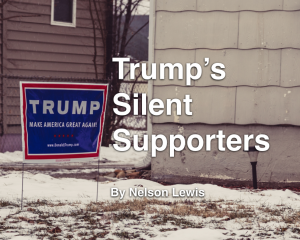 People across the board are shocked about Donald Trump’s upset victory over Hillary Clinton. The political establishment across the board is shocked at the result, and many are left to wonder what caused this victory. I recently came across an article that discusses one of the biggest factors of Trump’s win, the “undercover Trump voters” who handed him the win.
People across the board are shocked about Donald Trump’s upset victory over Hillary Clinton. The political establishment across the board is shocked at the result, and many are left to wonder what caused this victory. I recently came across an article that discusses one of the biggest factors of Trump’s win, the “undercover Trump voters” who handed him the win.
There was a small but potent force of voters, particularly in swing states, who were quiet about their support of Trump. This wasn’t necessarily due to embarrassment, but more that they were tired of arguing. This is similar to the so-called “shy voters” behind the Brexit vote in the UK earlier this year. These voters came from all sorts of ethnic and socioeconomic backgrounds, all of whom wanted the country to be taken in a different direction that Hillary Clinton, as well as most establishment Republicans, couldn’t.
The divide between the predicted and actual outcome of yesterday’s election is one for the books, without a doubt. GOP campaign manager Kellyanne Conway pointed out the campaign’s success in Pennsylvania. Although almost every poll revealed Trump losing the state, the campaign recognized that their message would strike a chord with the beliefs of many Pennsylvanians, and devoted a large amount of money and resources to winning the state. This ultimately proved fruitful, with their victory in Pennsylvania putting them over the top.
Thinking of our more conservative relatives who tend to constantly post pro-Trump content on Facebook, the image has emerged of the stereotypical Trump supporter being loud and vocal about their views. While that does certainly characterize a good number of Trump supporters, it doesn’t count for those Americans who are more quiet about their views. If there’s one thing to be learned, I suppose it’s to not rely too heavily on gallup polls.
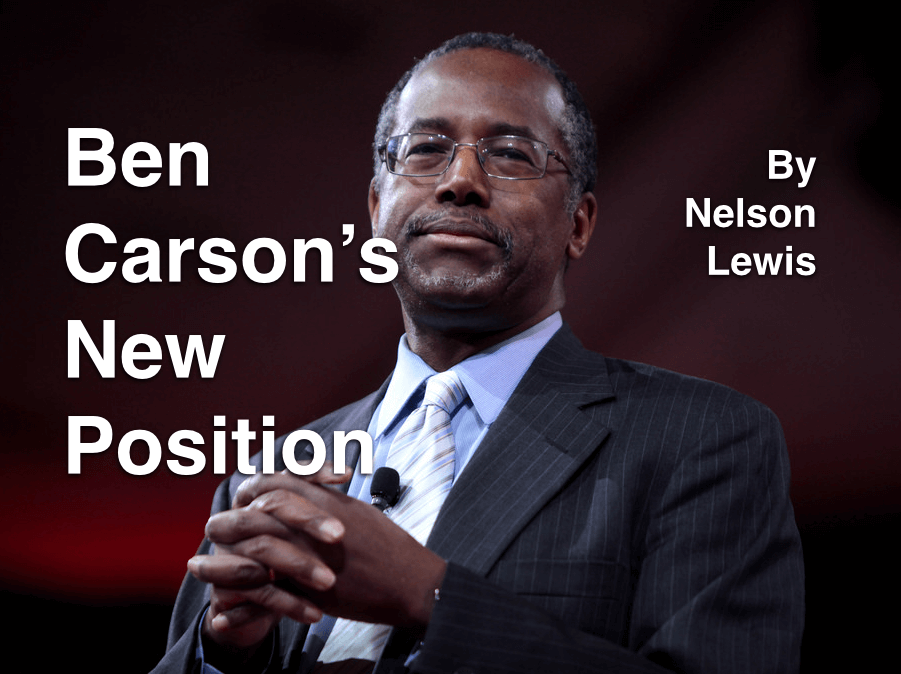
Ben Carson’s New Position
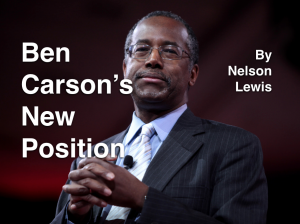 Earlier this year, after Ben Carson dropped out of the race and endorsed Trump, he hinted that he had been promised a cabinet position. And sure enough, Trump made good on his promise: earlier this week, the President-elect announced that Carson was declared secretary of the Department of Housing and Urban Development. In an official statement, Trump hailed Carson’s “brilliant mind” and his passion for “strengthening communities and families”.
Earlier this year, after Ben Carson dropped out of the race and endorsed Trump, he hinted that he had been promised a cabinet position. And sure enough, Trump made good on his promise: earlier this week, the President-elect announced that Carson was declared secretary of the Department of Housing and Urban Development. In an official statement, Trump hailed Carson’s “brilliant mind” and his passion for “strengthening communities and families”.
Since Trump’s victory, Carson has downplayed any potential role in the Trump Administration, saying that as a man who never held political office, he didn’t know if he had a place as a federal bureaucrat. However, he was excited about the opportunity to serve the communities of America, and accepted the offer from Trump. While the HUD seems like an odd place for a retired neurosurgeon with no political experience, it’s not as farfetched as you may think. Raised in inner City Detroit by a single mother who struggled to make ends meet, Carson is a man who understands the decline of various cities around the country. In his autobiography, Carson wrote of relying on food stamps and only doing well at school after he got a free pair of glasses that allowed him to see what was written on the chalkboard.
During his primary race, Carson spoke often about the HUD and the various issues it faces. As somebody who grew up in a community where many lived in rough public housing projects and received government subsidies to pay rent, Carson has been critical of public assistance programs that make poor people “dependent” on the government.
As one of Trump’s more high-profile black supporters, Carson’s position allows him to serve as Trump’s unofficial “envoy” to America’s black community, and spearhead Trump’s movement to reform “America’s blighted and dangerous inner cities”. In recent years, various cities across the country have started to jump back, jumpstarted by an influx of young professionals. In his new position, Ben Carson will hopefully be able to stimulate the growth and recovery of these cities.
About Nelson Lewis
An exposure to politics at a young age had a profound effect on media maven Nelson Lewis, who worked as a volunteer for numerous Republican politicians in and around his native Savannah. Nelson worked as a reporter and eventually anchor at two Savannah television stations growing up, WJCL ABC-22 and WTGS FOX-28, also recording voice teasers for airing on Fridays on WJCL-FM KIX 96 and previewing his upcoming stories, which aired on the Sunday evening news.
One of Nelson’s favorite experiences at WJCL was reporting live from the St. Patrick’s Day Parade (America’s second largest) from 1998-2000. Continuing in the spirit of his grandfather’s pioneering and trailblazing footsteps (he was the first to bring all-color television and stereo to the Savannah market), Nelson became the first person in Savannah market to bring a kid’s perspective to local news as its first youth reporter. In fact, one of the competing stations, WSAV NBC-3 hired their own youth reporter, Sean Champion, 18 months after Nelson began his reports and WJCL/TGS’s ratings dramatically increased.
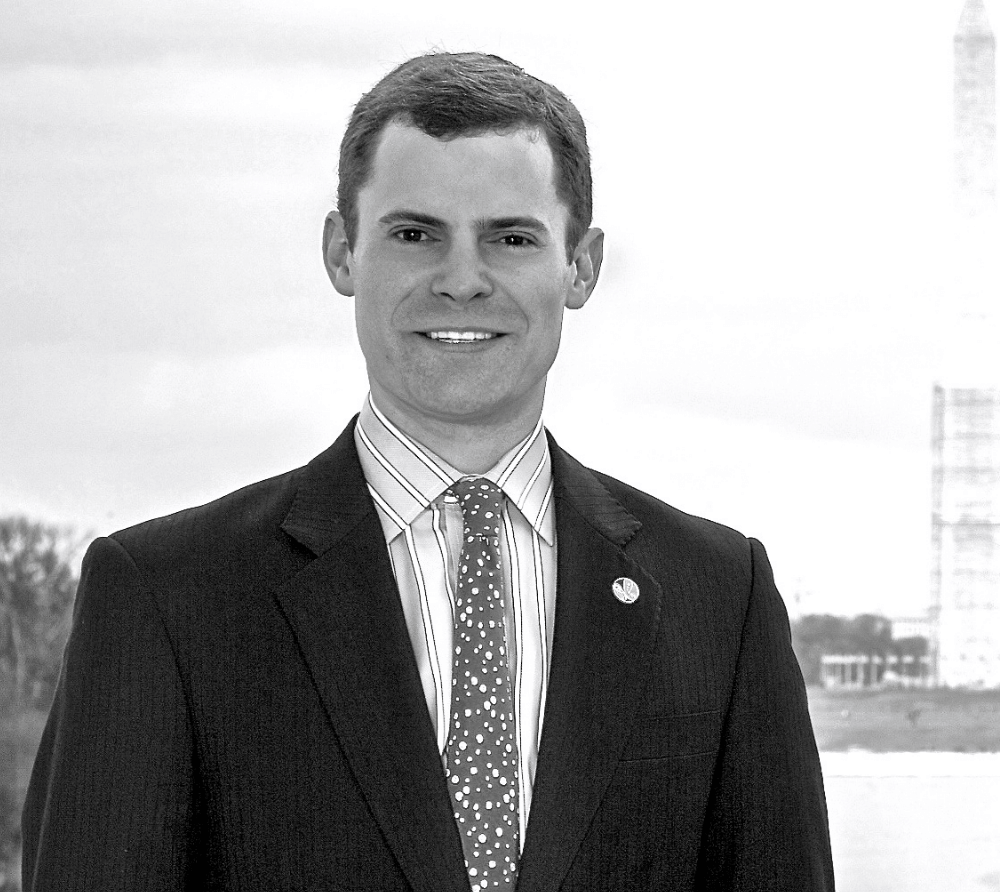
Work In Political Media
While a sophomore and junior at Lynn University, Nelson Lewis hosted “Politijam”, a lively political debate show that became well known across the university campus and served as the media editor of the univeristy’s weekly EPulse newspaper. While at Lynn, Nelson was selected to represent the entire undergraduate student population as a member of Lynn University’s Academic Task Force, charged with the duty of streamlining the core curriculum of the universities.
While attending Lynn’s College of International Communication, Nelson developed a friendship with Irving R. Levine, a well-known and nationally recognized correspondent for NBC News who became the network’s first full time economics correspondent, and was the creator of the precursor to CNBC. After a 45-year career in journalism, Levine went on to become Dean of Lynn’s communication program. After finishing college, Nelson Lewis followed Levine’s suggestion and moved to Washington, DC where his first job was as a press intern for a Republican congressman, which then led to a job booking at the Fox News Channel from 2006-2010. Here, he was able to put his love of politics and interest in the Republican Party to good use.
Upon the suggestion of Mr. Levine, Nelson Lewis enrolled in the Masters of Professional Studies in Journalism (International Politics) program at Georgetown University in 2009, where a special emphasis was placed on the dissolution of America’s Fairness Doctrine and on the major player in its demise, Bruce Fein.
Nelson was honored to be invited to speak at a roast honoring Levine’s 2009 death at the National Press Club, where he spoke alongside Levine family members and contemporaries such as former Meet the Press Moderator Marvin Kalb. He subsequently wrote a letter to the editor published in The Hill newspaper eulogizing Levine as a “top-notch raconteur” who many others have tried to emulate.
From his work at Fox News, Nelson Lewis was able to take a firsthand role in the DC journalism scene, and was blessed with the opportunity of meeting entertainment, political, and academic luminaries on a daily basis, including numerous sitting and former representatives, senators, governors and cabinet secretaries. These unique experiences gave Nelson a front row seat to many historic events and gave him a firsthand experience of how the Washington system works, from how laws are created to how news is made.
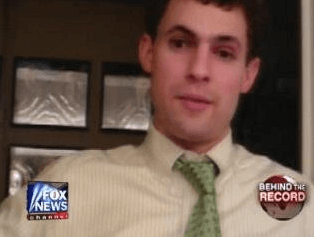
Through Nelson Lewis’ work creating Her Golf Network, coupled with his extensive booking experiences in segment producing gained at America’s highest rated cable news channel and through his time performing key internships at places such as WPBT’s Nightly Business Report in Miami, where he honed his scriptwriting skills, and at WTOC in Savannah, where he provided copyediting and on-site production assistance at the 2004 Sea Island G-8 summit, have provided him with a solid foundation and understanding of the news business. His time as a reporter/anchor growing up prior to his undergraduate studies helped him get an early start at doing what he loves most, reporting.
